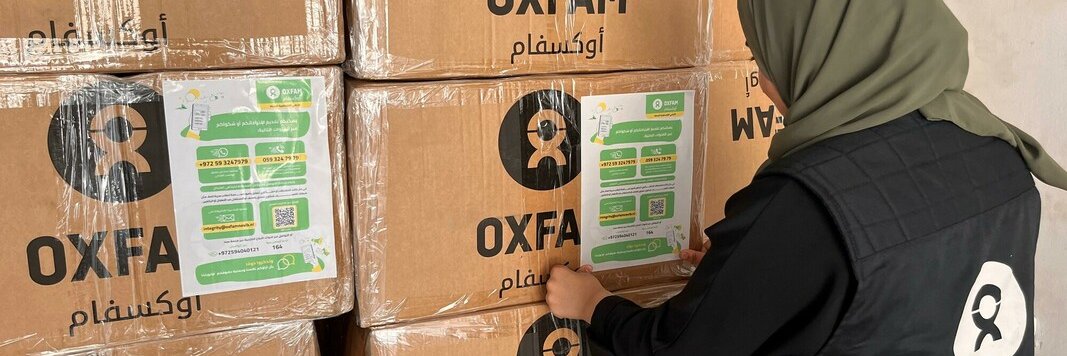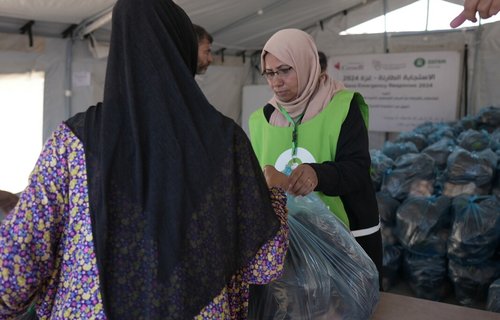An Oxfam staff member preparing food parcels to be distributed in North Gaza.

Distributing food and clean water to families in Gaza
Israel’s war on Gaza has taken a devastating toll on civilians and fuelled further Israeli escalations in violence in Lebanon and across the wider region.
A temporary, fragile ceasefire is now in place in Gaza, but it is under threat.
Since the start of the war, all of Gaza is at risk of famine. And the government of Israel is now restricting all humanitarian aid from entering – a clear breach of international humanitarian law.
Hundreds of thousands of Palestinians can return to what remains of their homes. But the future remains uncertain.
Read on to find out what our local partners are doing to support their community.
Photo: PARC / Oxfam.
Our partners include
The Palestinian Medical Relief Society, Juzoor, The Cultural & Free Thoughts Association, Palestinian Environmental Friends, Palestine Agricultural Relief Committee, Atfaluna, The Association for Woman and Child Protection, the Economic and Social Development Centre of Palestine, and Al Bayader.

Food Parcels in Gaza
Oxfam and our partner Economic & Social Development Center of Palestine (ESDC) distributed vegetables baskets among internally displaced people and affected communities in Deir Al Balah and Khan Younis.
Shahinaz's story
What's happening in gaza
An Oxfam staff member preparing food parcels to be distributed in North Gaza.
